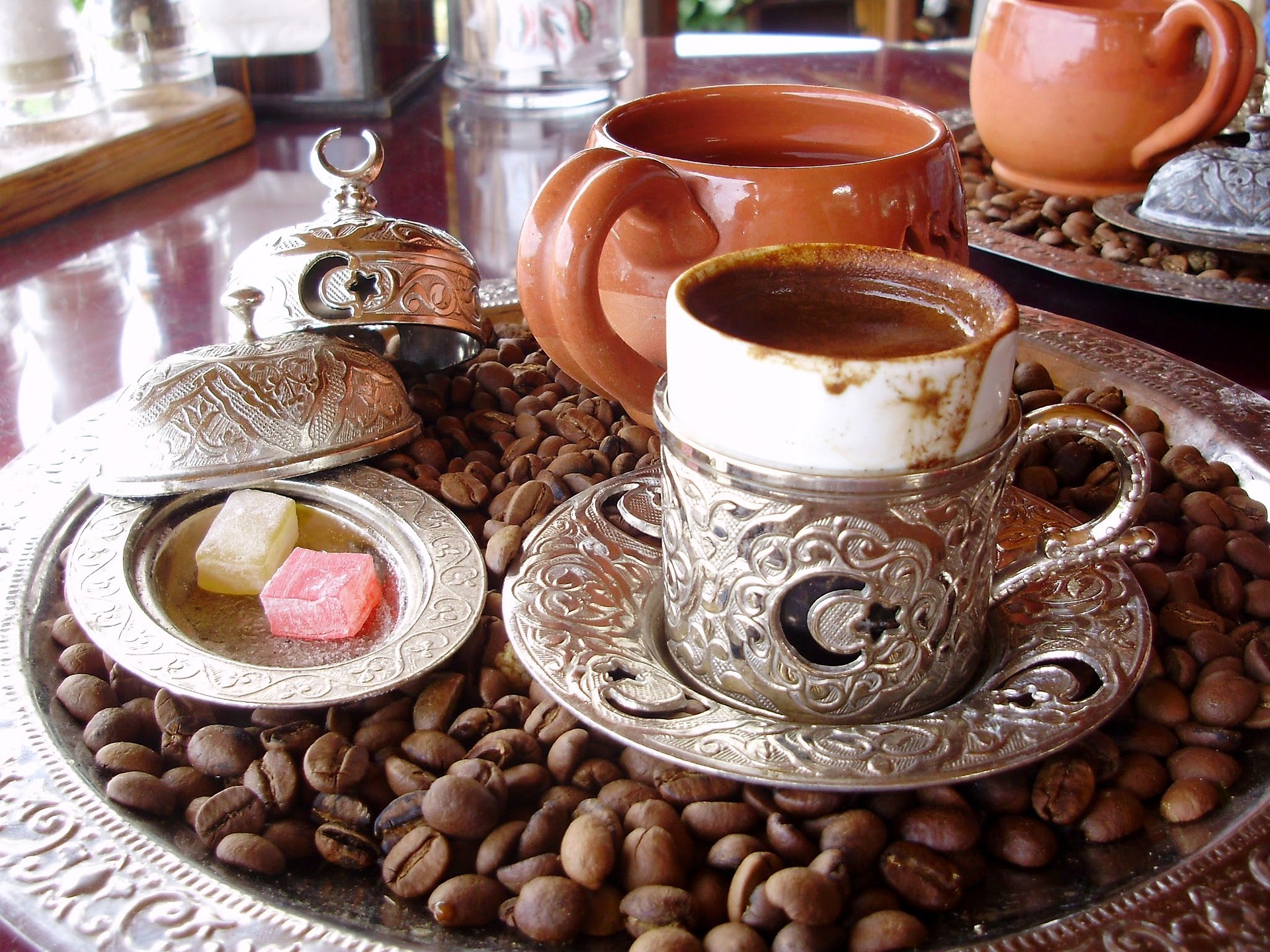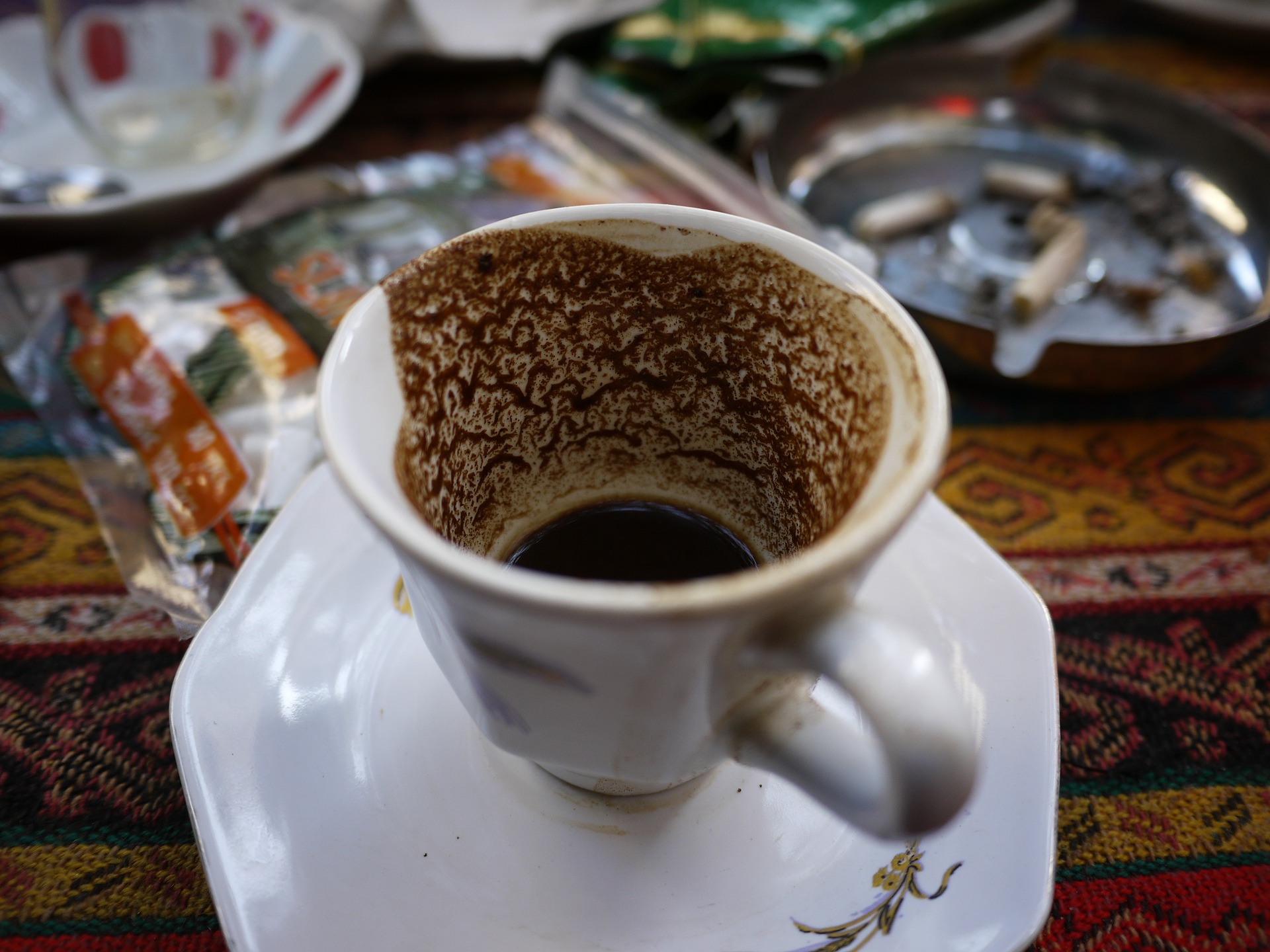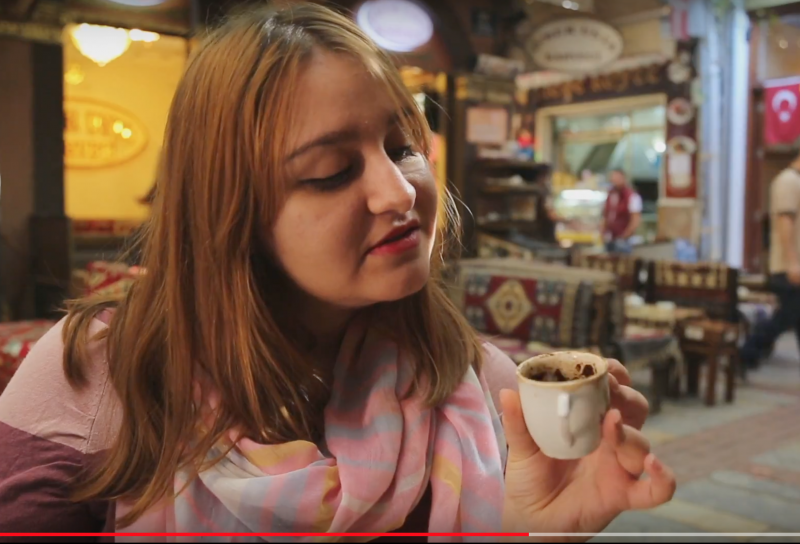In 3rd chapter of the book A2, the video titled “Turkish Coffee Reading” talks about traditional beliefs for reading Turkish coffee cups while emphasizing the use of future tense in colloquial language.
Future Tense in Colloquial Language
One of the main characteristics of Turkish taught to the students is that it’s a language that is read how it’s written. Rich in vowels, Turkish is a largely phonetic language which simplifies writing and reading.
One of the main challenges in reading and writing Turkish is the use of the letter “ğ”. Apart from this letter, usually students of Turkish rarely face any difficulty in reading and writing since a phonetic unit is expressed with a single letter and a single sound is made when reading a letter.
Even though we can say that Turkish is a language that is pronounced as it is written, it’s not quite right to call it a language that is spoken as it’s written. This is especially noticeable in the use of future tense. In daily life, it’s usually not possible to pronounce the verbs conjugated with future tense as they’re written. In fact, when you pronounce verbs conjugated with future tense as they are written, you risk sounding very unnatural. For instance the words written as “söyleyeceğim, yapmayacağız, almayacak mısın?” are pronounced as “söyliycem, yapmıycaz, almıycak mısın?” in spoken language. Reading or pronouncing a word as it is written may only be seen in formal texts. This is why listening exercises are crucial when learning or teaching future tense to simplify communication.
Turkish Coffee

Turkish people as fans of Turkish coffee in general have some habits about it. These are:
– Turkish coffee is quite strong, so it’s not consumed when hungry. As we mentioned in the breakfast section, Turkish people drink tea when they wake up instead of coffee. They prefer their coffee after the breakfast.
– While Turkish people consume a lot of tea, they do not drink that much coffee. They usually drink 2 – 3 cups of coffee a day.
– The sweetening levels of Turkish coffee “sade” (black), “orta şekerli” (mildly sugared) or “şekerli” (well sugared) depends on the person drinking it.
– Turkish coffee is served in small cups with a glass of water. Small desserts are also offered with coffee. Turkish delight is one of the most common desserts accompanying coffee.
– Cooked on low heat slowly, it’s more desirable for Turkish coffee to have foam. Even though the cups are small, it’s not drunk fast.
– A reason for slowly drinking it is it’s an excuse for chatting. Turkish people like to drink coffee not alone, but with someone while chatting.
Fala İnanma Falsız da Kalma (Don’t believe it, but don’t be without it)

Another characteristic of Turkish coffee is coffee reading. A person who wants to have a read first drinks his or her coffee, then turns the cup upside down on the saucer and waits until it’s cooled down. As you can see in the video, the person reading the coffee opens the cup and comments about the future based on the shapes he or she can see in it. While there are some clichés in coffee readings (such as bird = news, snake = enemy, mountain = obstacle etc.), each person’s reading is personal. The fortune teller interprets both the shapes in the cup and the saucer and usually asks the other person whose fortune is being read to make a wish. Whether this wish will come true or not is told at the end of the reading.
Professional fortune tellers are called “falcı”, but not all Turkish coffee seers are professionals. A lot of people who believe they have strong intuitions can read coffee. Since these people are well-known in their community, they are often asked to read cups when Turkish coffee is served.
Even though there are other methods for fortune telling (such as water, hand, sand etc.), in Turkey, the most traditional one is coffee readings.
To believe in what is foretold of course depends on the person. Some have coffee readings only for fun while some really believe it.
Whether they believe or not, many people enjoy getting readings in Turkey. The saying “Fala inanma, falsız da kalma” (Don’t believe it, but don’t be without it) indicates this.
Let’s see whether our seer’s reading will come true in future episodes.
Ayşin Önder
All rights reserved.
This text or any portion thereof may not be copied without prior written consent.



Leave A Comment